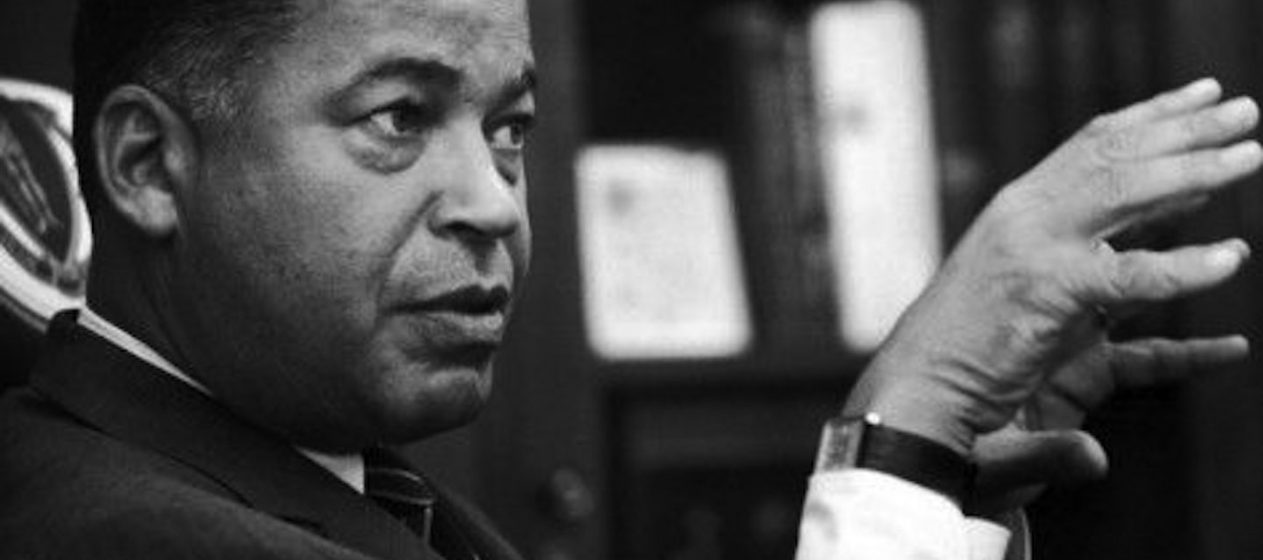Sadly but not surprisingly overlooked, Tuesday will be the 50th anniversary of the election of Edward Brooke to the US Senate. On 8th November 1966, Brooke became the first African American to be popularly elected to the Senate, representing Massachusetts as a Republican, which at the time was 97.8% white and had voted 67% Democratic in the previous presidential election. It was one of the highlights of my life to interview Brooke seven months before he died.
Brooke was one of the last of a generation of black leaders who personally knew someone who had been born into slavery. Brooke’s grandfather (and namesake) was born a slave on a plantation near Fredericksburg, Virginia. Brooke described him to me as follows: ‘I was very close to him. He was an interesting man. Dark colour and wide eyes. Straight black hair. So you could see the Indian [heritage], which was quite beautiful. He was very jovial…’ It was a deeply moving reminder that the history of black emancipation in America is short in the relative sweep of history.
Brooke was a dedicated Republican, even though his views were typically on the left of centre. When I visited his home in 2014, he had a wooden Republican elephant proudly on display. It is important to understand that Brooke was one of the last black politicians who was a Republican in part because the Republican Party emancipated his family from slavery. Brooke’s father was a loyal Republican because, as Brooke explained, he saw it as ‘the party of Lincoln and Emancipation’. For the Brookes, support for the Republicans remained tied to their racial history as liberated African Americans.

By no means did his tribal Republicanism mean he was uncritical of his party. At the 1964 Republican National Convention in San Francisco, Brooke gave a speech urging the party to endorse a more robust civil rights plank in its platform. He spoke of his pride of being a Republican, a party ‘founded on the principals of freedom, equality, and justice for all men’. At the convention, Brooke warned his fellow party colleagues, ‘Let us not fool ourselves. The Republican Party faces a crisis’. He urged them to back Pennsylvania governor William Scranton whom he believed would ‘make decisions not based upon political expediency but based upon what is legally and morally right’. Brooke refused to support Barry Goldwater in the general election against Lyndon Johnson. He described Goldwater’s campaign as, ‘a deviation from anything resembling traditional Republican values and virtues’.
In 1964, Goldwater only carried the Deep South and his home state of Arizona. Brooke lamented that the Republicans’ success in the South was ‘an exception which is more cause for alarm than satisfaction’. He argued that the strategy of winning Southerners ‘motivated by anti-civil rights (or anti-Negro) sentiment…reflected shamefully on the party’s moral stature’. At its worst, he wrote in his assessment of the election, that the Republican presidential campaign in 1964 made ‘appeals to naked racism’.
In 2008, for the first time since 1964, Brooke did not vote for the Republican candidate for president, supporting Barack Obama. Brooke was later awarded the Congressional Gold Medal by Obama – an incredible moment where within one lifetime, this man who had known a former slave also met the first African American president.
For a man who came to the Republican Party in part because it was the party which gave his own grandparents freedom, I cannot think of a worse way to honour his legacy than for the party to be represented by its current nominee.







